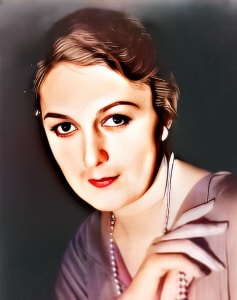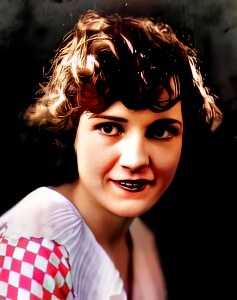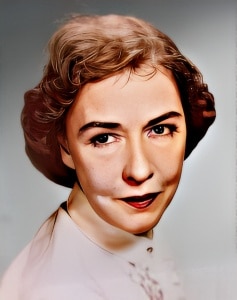 Dorothy Cumming, born on April 12, 1894, in New York City, was an American actress who made a significant impact during the early years of American cinema.
Dorothy Cumming, born on April 12, 1894, in New York City, was an American actress who made a significant impact during the early years of American cinema.
Her career spanned the silent film era, and she is remembered for her versatility as an actress and her ability to portray a wide range of characters. While her name may not be as widely recognized today as some of her contemporaries, her work in the film industry remains a valuable part of cinematic history.
Cumming’s journey into the world of entertainment began in the early 20th century, a time when the film industry was still in its nascent stages. Silent films were the dominant form of entertainment, requiring actors to convey emotions and narratives primarily through facial expressions and physical movements. Dorothy Cumming’s adaptability to this medium and her talent for captivating audiences through her performances were indicative of her acting prowess.
One of the pivotal moments in Cumming’s cinematic career was her role in the 1922 silent film “ Manslaughter,” directed by Cecil B. DeMille. “ Manslaughter” is a captivating drama that explores themes of privilege, justice, and societal expectations, set against the backdrop of the Roaring Twenties. In the film, Cumming’s performance added depth to the narrative, showcasing her ability to engage with complex characters and emotionally charged storylines. The film is celebrated for its opulent set designs, grandiose party scenes, and thought-provoking storytelling.
“ Manslaughter” is a reflection of the moral dilemmas and conflicts of the time, serving as a critique of the excesses and lack of accountability prevalent in the Roaring Twenties. It’s known for its compelling narrative and thought-provoking themes, and Dorothy Cumming’s contribution to the film played a part in its success.
Cumming’s career extended beyond “ Manslaughter.” She appeared in a variety of silent films, encompassing dramas, comedies, and character-driven roles. Her filmography showcased her ability to engage with a diverse range of characters and narratives, further establishing her reputation as a versatile actress in the early days of cinema.
The transition to sound films marked a significant shift in the film industry, challenging many silent film actors to adapt to this new era. Dorothy Cumming successfully made the transition, underscoring her adaptability and commitment to her craft. She continued to appear in sound films, solidifying her place in the evolving cinematic landscape.
While her name may not be as widely recognized today as some of the leading actors of her time, Dorothy Cumming’s contributions to early American cinema are a testament to her talent and dedication. Her performances in the silent film era and her successful transition to sound films underscore her versatility as an actress.
In conclusion, Dorothy Cumming was a talented and versatile American actress who made significant contributions to the early years of American cinema. Her transition from the silent film era to the world of sound films allowed her to showcase her adaptability and talent in a variety of roles. Although her name may not be as widely remembered today, her work in the early days of cinema remains a valuable part of the history of early American cinema. Dorothy Cumming’s performances continue to inspire future generations of actors and filmmakers, and her legacy endures as an integral part of the early days of the film industry.
Loading live eBay listings...




